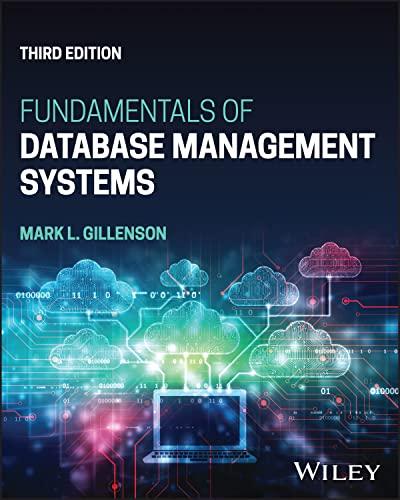Answered step by step
Verified Expert Solution
Question
1 Approved Answer
Computer security is paramount in safeguarding digital assets and ensuring the trustworthy operation of systems. Key concepts include confidentiality, preserving data privacy through encryption and
Computer security is paramount in safeguarding digital assets and ensuring the trustworthy operation of systems. Key concepts include confidentiality, preserving data privacy through encryption and access controls. Integrity which maintaining the accuracy and reliability of data through checksums and error correction. Another concept is availability, ensuring continuous access to information with backups and redundancy. Authentication is used for verifying the identity of users or systems. Authorization controls access to resources. It is followed by physical security which protects the infrastructure, and principles like least privilege and open design. Assurance, authenticity, and anonymity further enhance security by instilling confidence, ensuring nonrepudiation, and allowing users to operate anonymously. Adhering to these principles is crucial for building resilient systems that defend against unauthorized access, data breaches, and other cyber threats.
Computer security is crucial in the digital age due to the pervasive integration of technology in our daily lives. As we increasingly rely on computers for communication, financial transactions, and storing sensitive information, the risk of unauthorized access and malicious activities rises. Without adequate security measures, personal and organizational data becomes vulnerable to theft, manipulation, or destruction. Cyber threats, ranging from phishing and malware to sophisticated cyberattacks, can compromise not only individual privacy but also the integrity and availability of critical systems. Worrying about computer security is essential to safeguard our digital assets, maintain trust in online interactions, and ensure the smooth functioning of interconnected systems.
Ignoring any of the security principles can lead to serious risks. For instance, if we ignore the principle of least privilege, it can lead to unauthorized data access or even data loss. The principle of least privilege suggests that a user should be given the minimum levels of access necessary to complete hisher job functions. If this principle is ignored, a user might get more access than required which can be misused, either intentionally or unintentionally.
After a computer attack, the first step is to identify and isolate the affected systems to prevent the threat from spreading. Next, you should remove the cause of the breach, which could be a malicious file or unauthorized access. After that, it's important to recover any lost data from backups and update your software to its latest version to prevent future attacks. Finally, analyze the attack and learn from it Identify how the attack happened, what vulnerabilities were exploited, and how to prevent similar attacks in the future. It's also important to report the incident to the relevant authorities, especially if personal data was compromised.
overall very short conclusion
Step by Step Solution
There are 3 Steps involved in it
Step: 1

Get Instant Access to Expert-Tailored Solutions
See step-by-step solutions with expert insights and AI powered tools for academic success
Step: 2

Step: 3

Ace Your Homework with AI
Get the answers you need in no time with our AI-driven, step-by-step assistance
Get Started


